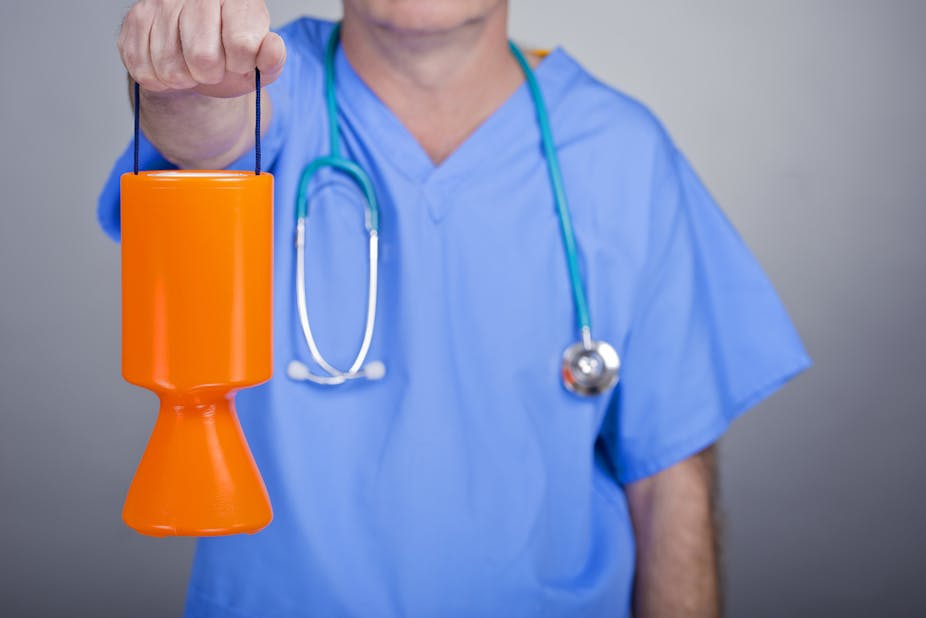England’s health secretary, Jeremy Hunt, is keen that “health tourists” pay to use the National Health Service (NHS) while in the country. In April 2015, the UK government introduced an annual £200 “health surcharge” that visa and immigration applicants from outside the European Economic Area (EEA) have to pay if they plan to stay in the country for more than six months. Once they’ve paid and been granted a visa, these visitors can use the NHS free-of-charge but they have to pay for prescriptions, dental treatment and eye tests. Short-term visitors are required to pay 150% of the cost of hospital care.
Hunt has recently launched a consultation to extend these arrangements. He proposes that short-term visitors should also be charged if they use A&E, some GP services or need an ambulance. He also wants the NHS to get better at asking EU visitors to present their European Health Insurance Cards when seeking treatment so that their home countries can be billed for care.
There is money to be made. According to NHS Accounts, in 2014-15 the NHS received £50m from other EU states for treatment of their citizens and £47m from chargeable overseas patients. Hunt believes that these sums can be increased fivefold.
Money raising
The health surcharge is a low cost way to raise money. It’s easily administered, and hard to evade. Everyone has to pay when applying for a visa to stay more than six months.
But collecting money by charging patients is more costly. All those visiting for less than six months face charges for using the NHS, unless they are exempt. But the NHS isn’t geared up to collect money. Charging requires collecting EHIC details or, for non-EEA patients, issuing a bill for their care and making sure that it gets paid.
NHS staff might be reluctant to ask patients to produce proof of their entitlement to care. And there are also objections to the bureaucratic burden of setting up the infrastructure to issue and chase payments. But in assessing how much revenue the proposals might generate, the government has factored in these set-up and running costs.

It is likely that many who should be charged won’t be, and many who are charged are unlikely to pay. But the government’s assessment allows for these possibilities too, reckoning that only 50% of visitors will be identified, from which only 50% of costs will be recovered.
How many?
Hunt claims that, having allowed for implementation costs and billing failures, the charges will recover £500m a year. But there is some guesswork to this claim: nobody knows how many so-called “health tourists” use the NHS.
The government commissioned Prederi, a consultancy firm, to estimate visitor and migrant use of the NHS. Prederi didn’t draw on any actual data about visitor and migrant use because, for most types of NHS services, this information is unavailable.
Prederi made predictions about migrant use of health services by comparing the characteristics of visitors and migrants to the national population. To do this they used data about migrants from the International Passenger Survey and about the population from the 2011 census. From this, they came up with a series of “modelled costs” for different NHS service areas.
While we don’t know how many migrants use most NHS services, we have some idea about how many use hospital care. This information can be used to cross-check Prederi’s predictions. Every year the Health and Social Care Information Centre reports where people admitted to hospital come from. Patients who are not resident in England, Wales, Scotland and Northern Ireland are classified as “foreigners”.
It turns out that the NHS identifies few “foreigners” that use hospital care. Out of a total of 15,892,457 people admitted to hospital in 2014-15, only 32,693 (0.2%) were foreigners. But no address is recorded for 250,790 (1.58%) of patients. If most of these patients are foreigners too, hospitals are identifying only 12% of those who could be charged for their treatment, either directly or via their EHIC.
On this basis, Hunt’s claim that revenue can be increased fivefold seems achievable, even allowing for payment defaults. And Prederi’s predictions don’t seem far off either.
The UK is running behind
This suggests that Hunt’s claims about the number of health tourists and the money to be gained from charging appear reasonable. But is it fair to charge these patients?
The government proposes various exemptions for charging and GP consultations will remain free to all, so as not to deter people from seeking care. Compared with other EU countries, the UK is not very good at identifying and charging foreigners who use the NHS. This comparison is true even for countries with NHS-type systems, such as Spain, where greater efforts are also being made to recover costs from health tourists. Hunt’s proposals will simply bring us in line with other EU countries.

